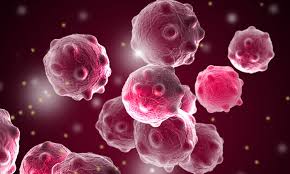BREAKTHROUGH! Breast Cancer: Australian Researchers Identify Cancer Protein- Creld2 Responsible For Rapid Tumor Progression.
Breast Cancer: Oncology researchers from University Of South Australia have made a significant breakthrough by discovering how an obscure protein causes breast cancer to develop and grow more quickly.

According to Associate Professor Dr Michael Samuel, a senior University Of South Australia researcher in the Centre for Cancer Biology (CCB), who spearheaded this research with co-lead scientist Dr Marina Kochetkova, high levels of a protein called Creld2 have been linked to the most aggressive types of breast cancer with lower survival rates,
The research findings published in
the medical journal Nature Cell Biology details the process as to how aggressive breast cancers produce Creld2, which hijacks healthy cells, to promote tumour progression.
https://www.nature.com/articles/s41556-020-0523-y
Dr Samuel told Thailand Medical News, "Medical scientists have been aware of this protein for some time, but it has not been well-studied and until now we had not understood the role it plays in breast cancer. Creld2 appears to make normal, healthy cells surrounding the tumour behave abnormally, causing them to help tumours grow."
The research team at the CCB, an alliance between the University of South Australia and South Australia Pathology, is now working on therapies to destroy or block Creld2, with the aim of stopping breast cancers from growing and spreading around the body or metastasizing.
It has been observed that high levels of Creld2 are found in triple negative breast cancers, which make up 15-20 percent of all breast cancers in the world. Such triple negative breast cancers are difficult to treat and have the poorest survival rates. This type of breast cancer also frequently affects younger women.
Interestingly, Creld2 at high levels is also found in kidney cancers, non-melanoma skin cancers ie the most commonly diagnosed cancer in Australia and invasive squamous cell carcinomas, which can be deadly if not detected early.
Dr Samuel said, "The prognosis for all these cancers is not good, so if we can destroy or block this protein, we could potentially stop these cancers from growing."
The research team has already begun research of identifying potential inhibitors of these proteins and hopes to isolate some possible candidates soon for further clinical research.
For more on
breast cancer, keep logging to Thailand Medical News.
We Desperately Need Your Help. Please Help To Sustain This Website And All Our Initiatives To Propel Research By Donating. https://www.thailandmedical.news/p/sponsorship
